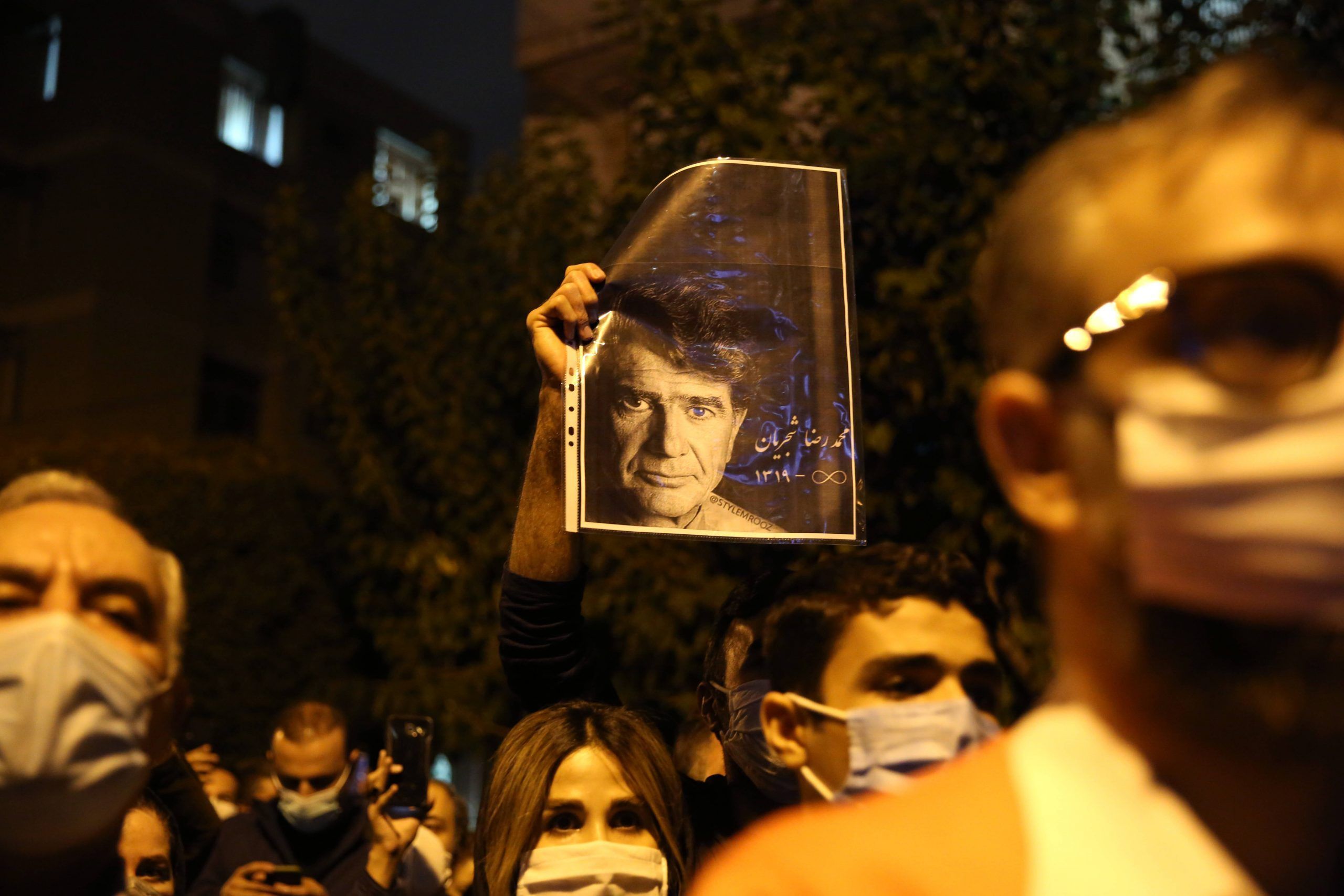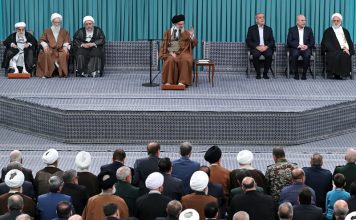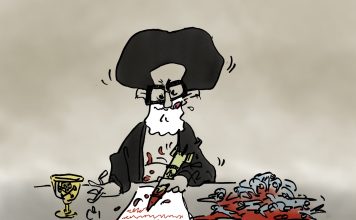Oct 10 (Reuters) – Mohammad Reza Shajarian, Iran‘s most celebrated musician and a critic of the government, was buried on Saturday near the 10th century national poet Ferdowsi, Iranian media reported.
A classical composer and singer who died on Thursday in a Tehran hospital at the age of 80 after a long battle with cancer, was regarded as a national treasure who revived traditional music.
But he became a beacon of opposition after he condemned the violent government crackdown of protests against the disputed 2009 election that gave a second term to hardline President Mahmoud Ahmadinejad.
He was swiftly banned from Iran‘s music scene.
[aesop_image img=”https://kayhanlife.com/wp-content/uploads/2020/10/2020-10-08T000000Z_47546027_MT1IMGOST0003Y3R4G_RTRMADP_3_IMAGO-IMAGES-scaled.jpg” panorama=”off” credit=”Iranian singer Mohammad Reza Shajarian dies aged 80 Female fans of Mohammad Reza Shajarian mourn in front of the Jam hospital, where Shajarian reportedly passed away, in Tehran, Iran Mohammad Reza Shajarian: Iran s legendary singer dies in Tehran. Mohammad Reza Shajarian, whose distinctive voice quavered to traditional Persian music on state radio for years and supported protesters after Irans contested 2009 election, has died aged 80 from cancer. Renowned singer surprised fans in 2009 by backing protest movement after contested vote. REUTERS./ ” align=”center” lightbox=”on” captionsrc=”custom” captionposition=”left” revealfx=”off” overlay_revealfx=”off”]
State TV on Saturday made a brief announcement about Shajarian’s burial, which the media said was attended by his family, the culture minister, music veterans, artists, and fans.
The official IRNA news agency said big screens were installed in the streets of the nearby city of Mashhad to allow his fans to watch the procession live.
However, state TV did not cover the event live and photos and videos were posted on semi-official websites hours after the funeral.
Shajarian was buried, as he had willed, in the vicinity of Ferdowsi’s mausoleum in the northwestern city of Tous.
Video footage posted on semi-official Iranian news sites showed mourners singing “Morgh-e Sahar” (The Dawn Bird) over Shajarian’s grave. The ode to freedom was written in the early 20th century during the Iranian constitutional revolution. It was written by Morteza Neidavoud and Mohammad-Taqi Bahar, known as Malek osh-Sho’arā Bahār, the poet laureate, journalist, and eminent scholar. Bahar wrote the words while in prison. It has been performed continuously by numerous celebrated singers including Mohammad Shajarian.
There were conflicting reports about whether Shajarian was buried inside Ferdowsi’s mausoleum in the northwestern city of Tous – as his family had planned – or close to his tomb.
Earlier, a government official in the northwestern Khorasan Province, home to the ancient city of Tous, said the burial would follow coronavirus protocols and masks would be distributed to mourners.
Social media users reported access to the funeral site was restricted for security reasons and that authorities had restricted air travel to Mashhad.
A gathering on Thursday outside the Tehran hospital where Shajarian had died turned into a street protest. Social media videos showed police using batons against fans after they chanted slogans against state media – which had boycotted Shajarian for the past decade.
“On Friday morning Tehran Behesht Zahra cemetory for Shajarian security forces block people from attending prayer service. The Supreme National Security Council sent directives to municipalities three weeks ago banning public memorial gatherings.”
https://t.co/soQO8Tzkjz pic.twitter.com/NSy1qQEojN— sajadsafari (@sajadsafari60) October 9, 2020
([email protected]; Editing by Mark Potter and Christina Fincher)








